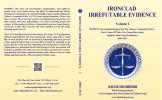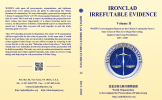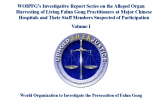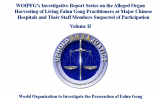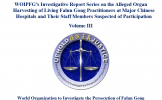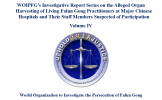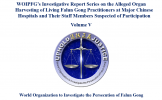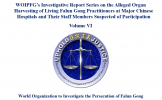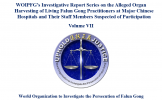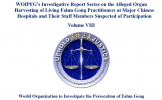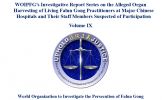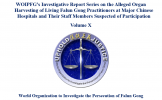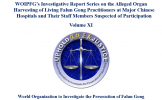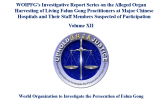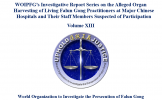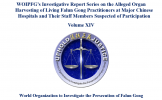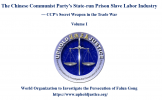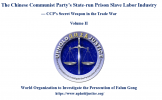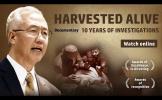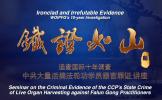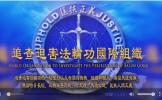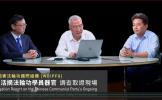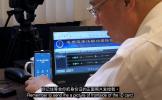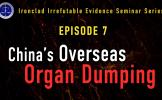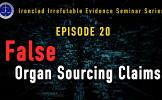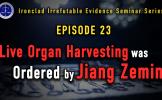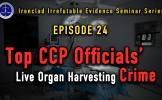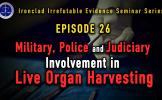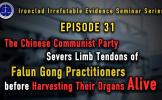Investigative Report on Chinese Consul Hu Xiaolan and Others in Thailand in Persecuting Falun Gong
Investigative Report on Chinese Consul Hu Xiaolan and Other Officials in Thailand Involved in the Persecution of Falun Gong
Since launching the persecution of Falun Gong on July 20, 1999, the Chinese Communist Party (CCP) has attempted to extend this persecution all over the world via their embassies and consulates in foreign countries. The Chinese embassy officials in Thailand have been carrying out the CCP’s persecution policy. Their major method consists of asserting pressure on the Thailand government and inciting hatred in the Thai Chinese communities. Recently, Consul Hu Xiaolan even publicly threatened Thailand government officials and interfered with Epoch Times volunteers’ distribution of the booklet - the Nine Commentaries on Communist Party at the tourist areas. She demanded the Thailand government arrest those volunteers. This report is going to reveal how the Chinese embassy has been trying to interfere with Thailand’s internal affairs and control the Chinese communities, to persecute Falun Gong.
CCP actions behind the attitude of Thailand’s Government towards Falun Gong
At the beginning of 2001, the Falun Gong practitioners had planned to have an April cultivation experience sharing conference and had invited some practitioners from other countries to the conference. The CCP took certain systematic and organized action to stop this conference from happening.
February 22, 2001 the Chinese embassy held a meeting for the Chinese companies to discuss this issue. According to Voice of America, opinions of the high-ranking officials in the Thailand police department were such that Falun Gong practitioners have never cause any trouble in Thailand. This group should not be treated as trouble, as long as they don’t have any political activities or other activities that would threaten the peace and public security. But according to the Thai-published newspaper China Daily, the leader of the Thai police, a general with higher rank, said if Falun Gong practitioners’ activities would affect relations between Thailand and China, then we would have to forbid them. His mentioning the relationship between Thailand and China demonstrates that pressure from the CCP is a major concern for the Thailand government. [1]
On February 28, 2001, the XinhuaNews Agencypublished an article, quoting commentary articles from the Thailand Chinese newspapers Jinghua Chinese Daily, Asian Daily and New China Daily. All of these were against Falun Gong practitioners holding a conference in Thailand. These articles’ common theme is their emphasis on the social stability of China and deals with the relationship between Thailand and China. [2] During a phone interview with a reporter from Singapore’s Morning Press, the head editor at New China Daily admitted that, more or less, the reactions from the Chinese communities may be due to influence from the Chinese embassy. [3]
On March 30 2001, The Chinese News Net reported that, on order from Thailand Premier Thaksin Shinawatra, the Ministry of Foreign Affairs of Thailand informed the Chinese Chamber of Commerce in Thailand in writing that a Falun Gong conference is forbidden in Thailand. [4] The report from the Chinese News Net did not say why this letter was not sent to law-enforcement agencies or event contact person of Falun Gong, but to the Chinese Chamber of Commerce, closely allied with the CCP.
In August 23, 2003, led by Wang Jiarui, the head of CCP International Department, a CCP delegation met Somkid Jatusripitak, the vice prime minister and also the vice president of the “Thai Rak Thai” Party, and Surakiart Sathirathai, the Foreign Minister and also the vice president of the “Thai Rak Thai” Party, who expressed that they support the Chinese government on the Falun Gong issue. During the meeting, Wang Jiarui expressed appreciation from Chinese government to the Thailand government for their support on the Falun Gong and Taiwan issues. [5]
On November 15, 2003, The Washington Post quoted a Thai intelligence official who said, “at the Chinese government’s request, the Thai government keeps close watch on Tibetans, democratic movement activists and Falun Gong practitioners entering or exiting Thailand. Also, when Chinese government leaders are visiting, the Thai government forbids those people to enter Thailand.” [6]
Chinese Embassy’s anti-Falun Gong activities within the Thai government, the Thai society and Chinese communities
In August 1999, the then Chinese ambassador Fu Xuezhang asked the Thai government to arrest the founder of Falun Gong, Li Hongzhi, who was planning to visit Thailand. The Thai government refused this request.
On June 20, 2002, the Chinese embassy held an anti-Falun Gong photo exhibit and invited more than 100 celebrities from the Thai government, the religious community, from education, commerce and the Chinese community to the opening. Yan Tingai, the ambassador at that time, made an anti-Falun Gong speech and encouraged the Thai people to participate the activities of the persecution of Falun Gong. [8]
Before and after a 2004 international conference held in Bangkok, Thai police received a secret list of Falun Gong practitioners’ names collected by Chinese embassy. The Chinese embassy officials asked Thai police to spy on these citizens, stating that those Thai citizens’ practicing Falun Gong would be “a threat to the Chinese government.” [9]
At the beginning of 2005, the Chinese embassy threatened a Chinese businessman in Thailand, stating if he still wanted Chinese tourists to come to tour your site you must forbid Falun Gong practitioners to pass out Falun Gong materials at your tourist spot.
On April 2005, Thai police dragged a Thai citizen into a car in downtown Bangkok. The reason given: they needed to search him for drugs. Discovering this person to be a Thai citizen, the policemen were greatly embarrassed and apologized. They cursed the Chinese embassy for giving them wrong information. At that time this citizen handed out copies of the Nine Commentaries on the Communist Party. The policemen said, “We are really sorry, but please wait for 15 minutes before handing these out again.”
In April 30, 2003, Mrs. Pirjo Svenssson, a Falun Gong practitioner from Sweden who lived in Thailand was arrested because of visits by Chinese government leaders. Mrs. Pirjo Svenssson and her husband had been working in Bangkok for three years. That morning police knocked on her door, telling her that the immigration officers wondered if she had behaved illegally. No detailed reason was given. Policemen found a Chinese human rights videotape in her house; then they unlawfully arrested and jailed her. The Thai police’s action was due to interference in Thai’s internal affairs, prompted by the Chinese embassy. The real reason for arresting Mrs. Pirjo Svenssson was the Chinese prime minister’s visit to Thailand that day.
Chinese embassy suspected to control Chinese communities’ anti-Falun Gong activities
In April 2001, Thai Falun Gong practitioners planned to hold a cultivation experience sharing conference. The Chinese ambassador Yan Tingai organized an anti-Falun Gong conference in the Chinese embassy on February 22 and invited representatives from Chinese companies in Thailand. Afterward, representatives from more than 60 Chinese companies in Thailand published an open letter to all overseas Chinese companies, calling on all overseas Chinese companies “to band together to fight Falun Gong until the end.” Concurrently, about 300 Chinese students in Bangkok also held the anti-Falun Gong conference. [10]
Lin Hong, chief editor of the New China Daily, told a reporter from The Morning Press in Singapore that, led by Zheng Mingru, the president of Chinese Chambers of Commerce in Thailand and Hu Yulin, president of association of fellows from Chaozhou [11], many Chinese communities from all over Thailand placed a daily 2 or 3-page advertisement with six Chinese newspaper and one Chinese weekly magazine accusing Falun Gong. This action started an anti-Falun Gong movement in Chinese communities in Thailand. Moreover, they also wrote to government officials and members of parliament, saying they were strongly against any Falun Gong activities in Thailand.
Lin Hong said, the former deputy prime minister and minister of health, Korn Thapparansi, in the name of the president of the association of the Thailand-China Friendship [Association], also placed an advertisement on the newspaper to against the Falun Gong conference in Thailand.
Lin Hong stated that the Chinese communities’ reaction was also influenced by the Chinese embassy. [12]
Organizations and persons who are active in the anti-Falun Gong movement:
The Chinese Chamber of Commerce in Thailand and its president Zheng Mingru;
The association of fellows from Chaozhou and its president Hu Yulin;
The Thailand Chamber of Commerce and its president Wu Cheng;
The public fund of Chinese newspapers in Thailand and its president Wu Hongfeng, who is also the vice president of the Chinese Chamber of Commerce in Thailand and vice president of the Association of Thai-China Friendship.
Asian Daily in Thailand
Jinghua Chinese Daily
Officials in the Chinese embassy who are directly involved in persecution of Falun Gong
Zhang Jiuheng, male, born in August 1947, from Bobai, Guangxi Province. He was the Chinese ambassador in Singapore from April 2000 to April 2004 and has been ambassador to Thailand since May 2004. [13] He was personally involved Falun Gong persecution in Singapore and Thailand.
On February 25, 2001, Zhang Jiuheng invited representatives from the communities of commerce, education, from among Chinese companies and Chinese students in Singapore to an anti-Falun Gong conference at the embassy. Zhang Jiuheng made a speech to raise hatred towards Falun Gong. [14] On February 27, 2001, when visiting the tourist place Jushilin in Singapore, Zhang Jiuheng publicly slandered the founder of Falun Gong. [15] On November 10, 2001, the Chinese embassy in Singapore, the Chinese Science Association, and a Chinese anti-cult association held an anti-Falun Gong photo exhibit. In his opening speech, Zhang Jiuheng attacked Falun Gong and tried to raise hatred toward Falun Gong. [16] On June 11, 2004, after becoming ambassador to Thailand, Zhang Jiuheng accepted the Thai foreign minister’s attitude against the activities of Falun Gong and Taiwan independence. [17]
Hu Xiaolan, female, is the former deputy chief of the second consular bureau (European and American consular bureau) of the Ministry of Foreign Affair. [18] She has been the consul general in the Chinese embassy in Thailand since April 2004. [19]
According to the information offered by Thai officials, Hu Xiaolan and other diplomats went to Pattaya and other tourist places, and have been concerned several times about Thai citizens handing out copies of the Nine Commentaries on the Communist Party. They also threatened Thai officials in public. Hu Xiaolan told Thai officials, “We discovered that someone has been “forcefully” distributing to Chinese tourists some materials that are not in favor of China. You should forbid anyone to pass out materials in Pattaya; otherwise, we will stop sending Chinese tourists here to visit.”
Meanwhile, the Chinese embassy also provided Thai police with pictures of the volunteers from Epoch Times and the pictures of their cars taken by the people hired by the Chinese embassy. They also asked the Thai police to arrest these volunteers. A government official who spoke on condition of anonymity let it be known that Hu Xiaolan and other Chinese officials come here in person on a weekly base to check the information of handing out the Nine Commentaries. To satisfy them, Thai police had to had given the Chinese officials some Epoch Times newspapers they collected. [19]
Yan Tingai, male, who was the Chinese ambassador to Thailand from April 2000 to April 2004. He is the main person who organized and incited the Chinese communities in Thailand to assert the pressure on the Thai government, to forbid Falun Gong’s conference in Thailand in February and March 2001. On June 20, 2002, he organized an anti-Falun Gong photo exhibit in the Chinese embassy and made a speech attacking Falun Gong. He also petitioned the Thai society to participate in the persecution of Falun Gong movement.
Reference:
[1] VOA REPORT: “TAILAND-FALUNGONG MEETING” FEB 22, 2001 by Ding Li] Thailand government feels the pressure from Beijing’s struggle with Falun Gong. (Back)
[2] China News Services, February 28 2001 (Back)
[3] Epoch Times, February 23, 2001, “Bankbook’s disapproving Falun Gong parade might be related to Chinese embassy” (Back)
[4] China News Services reported on March 30, 2001 from Beijing (Back)
[5] CCP International Department news, Aug] 23, 2003 (Back)
[6] Philip P] Pan] The Washington Post, Nov 15, 2003, Page A.01 “China's Improving Image Challenges U.S] in Asia.” Since taking office in 2001, Thailand's prime minister, Thaksin Shinawatra, has made a point of cultivating closer ties with China, trying to position his country as Beijing's main diplomatic partner in Southeast Asia] At the request of the Chinese, his government monitors the comings and goings of Tibetan and democracy activists, as well as members of the Chinese spiritual group Falun Gong, and prevents them from entering the country when Chinese leaders are visiting, according to Thai intelligence sources. (Back)
[7] bignews.org Aug] 3, 1999, quote from Central News Agency (Taiwan) from Bangkok (Back)
[8] Xinhua News Agency June 20, 2002 by reporter Huang Heng] “Anti Cult, Protect Human Rights Exhibition Opens in Thailand” (Back)
[9] Epoch Times on June 11, 2005, a comprehensive report by Zhuo Lifang. (Back)
[10] China News Services reported from Bangkok on February 24, 2001 (Back)
[11] Chinese Embassy in Thailand News, September 21, 2003, Ambassador Yan Tingai gave a speech on the banquet for the leaders of The Public Fund of Chinese Newspapers in Thailand (Back)
[12] zaobao.com reported from Singapore on February 24, 2001 by reporter Zheng Fangsheng] News, International, “Bangkok …” (Back)
[13] Zhang Jiuheng’s CV. (Back)
[14] China News Services reported on February 26, 2001 from Singapore (Back)
[15] Jingxun News on February 27, 2001, Chinese Ambassador Zhang Jiuheng visited Jushilin in Singapore. (Back)
[16] Chinese Embassy in Singapore News, November 10, 2001, Ambassador Zhang Jiuheng gave a speech on the opening ceremony of photo-exhibit of “anti-cult and maintain human rights.” (Back)
[17] Chinese Embassy in Thailand News, June 11, 2004, Ambassador Zhang Jiuheng met the Thai Minister of Foreign Affairs (Back)
[18] Investigation record from “World Organization to Investigate the Persecution of Falun Gong” (Back)
[19] List of diplomats in Chinese Embassy in Thailand (Back)
[20] Epoch Times on June 11, 2005, a comprehensive report by Zhuo Lifang (Back)
World Organization to Investigate the Persecution of Falun Gong
Tel:1-347-448-5790;Fax:1-347-402-1444;
Mail Address:P.O. Box 84, New york, NY 10116
Website: http://www.upholdjustice.org/, http://www.zhuichaguoji.org/


